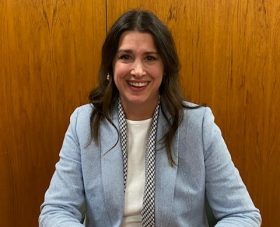HOT JOBS
|
|||||||
|
|||||||
|
|||||||
|
|||||||
|
|||||||
|
|||||||
|
|||||||
|
|||||||
|
|||||||
|
Senior Night set for Wednesday when Aces host Sycamores
Four seniors to be honored
Â
EVANSVILLE, Ind. – Senior Night is on tap Wednesday when the University of Evansville men’s basketball team plays host to Indiana State at the Ford Center. Tip is set for 7 p.m. CT with ESPN+ and the Purple Aces Radio Network on the call. Seniors Gage Bobe, Kenny Strawbridge Jr., Antonio Thomas and Yacine Toumi will be honored before and after the game.
Last Time Out
– Evansville led by a 26-24 score at halftime, but an 11-0 second-half run by Southern Illinois saw them finish with a 63-53 win
– Ben Humrichous led the Purple Aces with 11 points and 7 boards while Antonio Thomas registered 10 points
Reversing the Trend
– Entering the SIU game, Antonio Thomas averaged 2.8 points in the prior four games while shooting 21.4%
– He rebounded against the Salukis with 10 points on 4-of-5 shooting
– Thomas continues to be efficient from the line, connecting on 84.6% of his tries (T-5th in MVC); he has hit 23 of his last 25 tries
– With UE clinging to the lead in the final minute against Bradley, Thomas calmly hit all four of his attempts to clinch the victory
Back at his Best
– Ben Humrichous continues to get better and better since returning to the floor
– He has scored 18+ points in three of the last four games, averaging 17.5 PPG over that time
– Humrichous was 7-of-12 from the field with 6 boards and 6 assists at UIC
– He remains one of the most versatile players in the MVC and the stat rankings are indicative of that: scoring (11th | 15.4 PPG), FG% (9th | 51.6%), 3PT% (2nd | 43.5%), blocks (8th | 1.00/game)
Still Going Strong
– Leading the Purple Aces with 15 points at Murray State, Tanner Cuff continued his recent success
– Cuff has 9+ points in 6 of the last 10 games while averaging 9.0 PPG (90 points) over that span
– In the home win over UIC, he recorded a career-high 16 points on 6-of-10 shooting
– Over the last 12 games, Cuff has 19 assists and 11 turnovers; the 6 games prior saw him post 6 assists and 10 turnovers
Scouting the Opponent
– Indiana State opens the final week of the regular season with a 1-game lead atop the Missouri Valley Conference standings
– The Sycamores are 24-5 overall and stand at 15-3 in conference action
– Isaiah Swope paces ISU with 16.9 points per game with Robbie Avila just behind at 16.7 PPG
– Avila has a team-high 20 blocks and ranks second with 7.0 boards and 103 assists
– Ryan Conwell checks in with 15.8 PPG with Jayson Kent (13.1 PPG) and Julian Larry (10.8 PPG) also recording double figures
– Kent paces the Sycamores with 8.2 rebounds per game
Mayor Stephanie Terry today announced that Sarah Dauer will join her team as the city’s Corporation Counsel.
A native of Evansville, Dauer attended Dexter Elementary, Washington Middle, and Memorial High School. She received her bachelor’s degree at the University of Kentucky and her law degree from the University of Tulsa.
Since moving back to Evansville, Sarah served as In-House Counsel at Shoe Carnival for 8 years and later as Associate Counsel at Reckitt. She cares deeply about Evansville and the overall welfare of its citizens, animals and environment, and has served on various community and civic boards including YMCA, Holly’s House, Ark Crisis Child Care Center, Leadership Evansville and the Board of Parks Commissioners.
Her first day with the city will be Monday, March 4.
 “I’m thrilled to advocate for Evansville and to work in the Terry Administration,†Dauer said.
Her hiring represents a departure from the city’s legal structure under recent administrations, in which an external corporation counsel had the ability to delegate legal work as he or she saw fit. Earlier this month, Mayor Terry indicated that her administration would instead hire an in-house Corporation Counsel, a structure used by cities like Indianapolis, Fort Wayne, and Bloomington.
“As Corporation Counsel, Sarah Dauer will be an integral part of our full-time team,†Mayor Terry said. “By having her in the Civic Center with us every day, and with her sole focus being the legal needs of the city, both my office and our city department heads will have constant contact and access to counsel.
“Sarah brings a deep set of legal expertise and will guide Evansville through the process of forming its in-house legal team. I am grateful to have a fresh legal perspective to help us move forward as a city. I want to thank Marco Delucio of Ziemer, Stayman, Weitzel & Shoulders LLP for his years of service representing Evansville as our contracted City Attorney.â€
This does not, however, mean that the City of Evansville would end its relationship with all outside firms. Outside counsel will still be used for subject matter expertise and bid work on an as-needed basis.
Aces track and field complete indoor season at MVC Indoor Championships
The Purple Aces had one program record broken on Monday
CHICAGO – The University of Evansville track and field team set a new program record in the men’s 4×400 relay on the final day of the MVC Indoor Championships.
A program record, a personal record, and a fourth-place finish were the highlights for the Purple Aces on the second day of the MVC Indoor Championships. The men’s 4×400 relay team of Raymond Felton III (Houston / Clear Brook HS), Austin Liversgowdy (Florence, Ky. / Cooper HS), Alvaro Monfort (Castile Y Leon, Spain), and Cedrik Flipo (Beloeil, Quebec, Canada) had UE’s highest finish of the day in fourth place. Evansville won its heat and improved on the program record from earlier in the season by over two seconds with a time of 3:17.14.
The women’s 4×400 relay team also had a strong showing on Monday afternoon, coming in just under their program record time at the PNC Bank Bellarmine Classic. The women’s team of Eilen Brenne (Skien, Norway), Nicole Prauchner (Neuhofen an der Ybbs, Austria), Nayla Martin (Vaudreuil-Dorion, Quebec, Canada), and Kalina Urbaniak (Suchy Las, Poland) finished with a time of 3:59.14 for ninth place.
Prauchner ran in the only finals race that required qualification for the Aces. Prauchner finished seventh in the 800-meter race with a time of 2:14.90. UE had two other runners compete individually on Monday as Samuel Lea (Worchester, England) and Sarah Vanderhoof-Dossett (Franklin, Tenn. / Independence HS) ran the 3000-meter race. Lea ran a 8:42.42 for 25th while Vanderhoof-Dossett ran a 10:41.27 for 26th place.
Evansville’s other personal best on Monday came in the field as senior Brooke Springer (Henderson, Ky. / Henderson Community HS) threw a 10.13 in the women’s shot put. Springer broke her previous best throw by over half a meter and came a hundredth of a meter shy of the program record set by Antonia Lamond in 2023. The Aces also had Zach Dove (Princeton, Ind. / Princeton Community HS) and Jaden Hayes (Huntingburg, Ind. / Southridge HS) in the men’s shot put. Dove threw 14.87 meters for 17th while Hayes threw 13.07 meters and a 21st place finish.
Overall, UE finished in 10th place on both the men’s and the women’s side. The men were 10th of 10 while the women were 10th of 11.
Evansville will have almost a full month off from competition before beginning the outdoor season in March. The Aces first meet of outdoor competition will be on March 22nd and 23rd at the Margret Simmons Invite hosted by Murray State.
Letter To The CCO Editor: GOP Needs to Find Consistent Criteria for Vetting Candidates
GOP Needs to Find Consistent Criteria for Vetting Candidates
by Johnny Kincaid
FEBRUARY 27, 2024
Last week, numerous Indiana Republicans aspiring to run for precinct committeemen or delegate positions received notification that their candidacies were being contested. These notifications, issued by the county clerk’s office, included copies of the CAN 1 form signed by the county GOP chair.
The accompanying letter mandated attendance at a hearing for candidates wishing to contest the challenge. The CAN 1 form succinctly stated the grounds for the challenge: “Candidate for delegate does not meet the Republican Primary voting requirements and did not seek, nor file, an IRSC/CA-1 form.â€Â
Two significant issues emerge from this situation, both of which demand the attention of county chairs. The first pertains to the notification process, while the second concerns the consistency in enforcing primary voting requirements.
Beginning with the notification process, the tone of the letter from the county clerk’s office fails to foster a supportive environment for candidates. Many of these individuals, stepping into the world of politics for the first time, were recruited by friends eager to expand the party’s base. However, the response they received left them needing more clarity on the requirements.
Volunteers form the lifeblood of a political party, dedicating their time to various grassroots efforts. Precinct committeemen, in particular, play a vital role in local party operations. Instead of acknowledging the commitment of these potential delegates and committeemen, they are met with suspicion, potentially deterring future involvement.
What if county chairs extended a supportive hand, offering clarity on the process and encouragement to those facing challenges? A modicum of kindness could significantly enhance the GOP’s grassroots efforts.
The second issue concerns the inconsistent enforcement of primary voting requirements. County chairs can overlook a candidate’s voting record and file a waiver on their behalf. This waiver serves as a mechanism to allow candidacy despite failing to meet the primary voting requirements.
Inconsistencies in this process raise eyebrows, mainly when waivers are selectively granted. While some candidates face challenges based on their voting records, waivers have been granted in other cases. Such actions not only breed confusion among first-time candidates but also undermine the integrity of the selection process.
Waivers should be issued consistently and transparently. The recent decision by Vanderburgh Chairman Mike Duckworth to waive primary voting requirements for a specific candidate while challenging others casts doubt on the fairness and impartiality of the process.
Waiving the voting record of a candidate for that candidate to run against an incumbent should concern all elected officials. No incumbent should feel that the chair of their party is working against them and the party’s best interests. Upholding the rules and principles of fair play is paramount to maintaining trust and integrity within the party.
In conclusion, the challenges Indiana Republicans face underscore the need for a more transparent and supportive nomination process. By fostering an environment of inclusivity and fairness, the GOP can strengthen its grassroots foundation and inspire greater participation from its members.
FOOTNOTES: Johnny Kincaid is the host of the This Week in Evansville Podcast.
https://www.youtube.com/@thisweekinevansville/podcastsÂ
THE City-County Observer posted this letter without opinion, bias, or editing.







